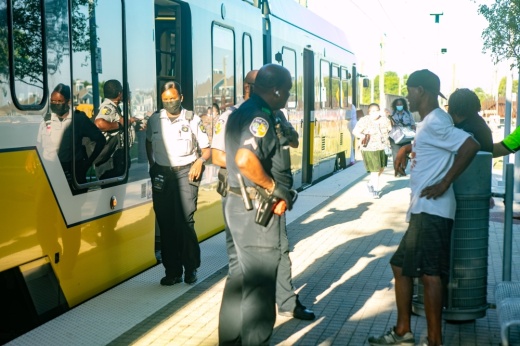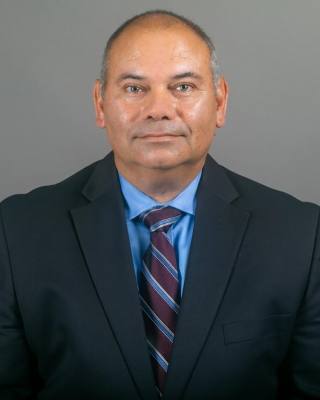Cato’s role will put him in charge of DART’s police department, which consists of 250 licensed police officers, 110 fare enforcement officers and 67 support staff members. He will also oversee the department’s security services as well as current and future emergency preparedness initiatives.
Cato spoke with Community Impact Newspaper in September about joining the transportation organization and how to promote safety throughout DART’s 13 member cities that include Dallas, Richardson and Plano. This interview has been edited for length and clarity.
What is the role of the DART Police and its officers?
We want provide an environment that's safe and secure for all of our community members: both the employees and the riders. We don't want anyone to feel unsafe in any city and environment, especially as they ride around our municipalities. I think that is the key to building credibility within the community going forward. One of the biggest focuses we have for ourselves is being good representatives of the organization. When [our officers] are working on the platforms, they are not just there to arrest people or to write citations. They are there to answer questions, direct staff and guide residents to their destinations. Not everybody who they're going to encounter is from the area. We also have a motorcycle unit that helps with traffic issues. We have officers involved in various [programs] and even a community outreach team that we have so that we can educate the public about things they should be looking for to stay safe.
Now that you are in the role as chief, what new initiatives do you want DART Police to focus on?
We are going to focus our efforts on a data-driven approach, looking at all of the workload analysis. People know that certain places are busier and feel less safe than others, but we're going to do a deep dive into the data. We are looking at all the information to increase our community engagement with folks who regularly arrive there. In addition, we are going to participate with other social service agencies, because one of the biggest issues or complaints that I've received in the last three weeks is about the unhoused population. We cannot fix that alone; we have to establish and maintain good working partnerships with nongovernment organizations, particularly the social service ones that serve that population.
How does DART cooperate with other police departments to promote safety?
[DART] is unique in the fact that we have our own police department that has been established since 1989. We have the responsibility for [maintaining] our facilities, our personnel and the people who ride here. Our primary focus is providing for their safety. However, we can't do that alone, because our facilities, bus lines and rail lines travel through other jurisdictions. It’s important to open communication with our partner cities. Anytime we're going to push an initiative, we have to be able to communicate with them. I want us to be very aware of that, so that everything that we do, we do hand-in-hand with those jurisdictions so that it can potentially affect the 13 member cities that we work within. People are used to the cities they live in and in the practices and the policing they have. We not only have to learn our own culture and how we approach things at our standards. We have to have a good working knowledge of how things are done in different jurisdictions. That's part of building those partnerships and working with our member cities. We want to be respectful of our partnerships and their authority, because we are going to need [to work together].
How can DART Police improve safety for residents?
There's some simple crime prevention tips that we want to educate people with so that they are not easy targets. We also want make sure our facilities are maintained and prepared in a way that they're not a suitable target as well. We want to identify those motivated offenders and arrest them when appropriate, but definitely make a presence so that they can't victimize anybody. That's why I believe in our outreach program. Our relationship with the public is the most important. You don't have to have a badge and a gun to participate in guardianship. I want to build an environment where everybody understands that we're going to work together to make this the safest transit system in the country.






